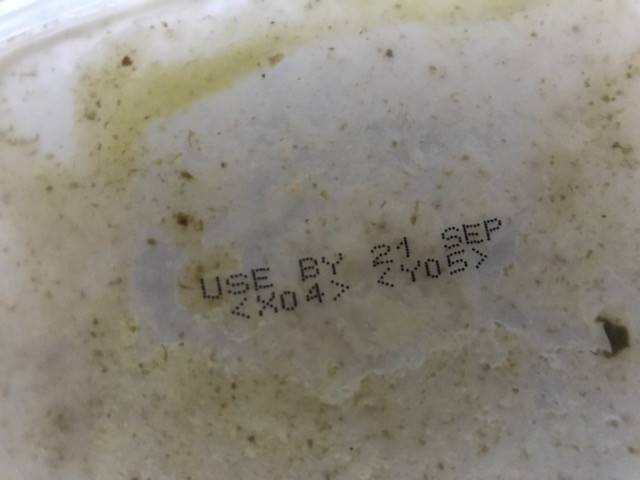The average British citizen is still throwing away hundreds of pounds of safe food a year due to ongoing confusion over the meaning of date labels.
A survey by Too Good To Go, whose app allows people to buy and collect surplus food, found that while 64% of British adults correctly understand that ‘best before’ dates mean that the food will not be at its best quality after the date shown, only half (52%) believe the food is perfectly safe to eat. This drops to 44% of 18-24 year olds.
As a result, the average Brit is estimated to throw away £303 worth of food a year on average due to it being past its best before date.
Too Good To Go commissioned the survey to mark the one-year anniversary of its industry initiative to tackle date label confusion. The ‘Look, Smell, Taste, Don’t Waste’ campaign was launched to educate consumers to use their senses instead of purely following best before labels. It also encourages brands to move from ‘use by’ to best before labels where safe to do so in a bid to reduce unnecessary food waste.
Over 40 food and drink brands including Danone, Yeo Valley Organic, Nestlé, Arla and PepsiCo have signed up to the initiative.
Morrisons recently announced plans to scrap use by dates on 90% of its own brand milk at the end of January as part of a drive to cut food waste and carbon emissions.
“We’ve seen an incredible appetite over the last year from food businesses joining our initiative and helping us to reduce the amount of perfectly good food that is wasted every day simply because of date label confusion. However, what is clear is that this is certainly not a job done,” said Jamie Crummie, co-founder of Too Good To Go.
Wrap is also encouraging businesses to move from use by to best before dates where safe to do so and for people to use their judgement to decide when products like milk are still good to consume. “Date labels can trigger food going to waste in the home, even best before dates, so moves like Morrisons from a use by to a best before on milk might sound insignificant, but are in fact huge,” said Catherine David, director of collaboration and change at Wrap.














